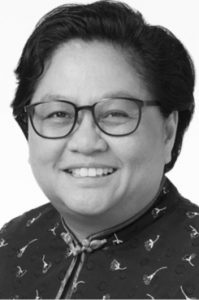Reed Smith Rebuilds in Asia
The firm is repositioning itself in preparation for a recession in Hong Kong and to better handle increased disputes arising from the U.S.-China trade war and the growth of Singapore as a technology hub.
September 25, 2019 at 05:47 PM
5 minute read
 Photo by J. Albert Diaz/ALM
Photo by J. Albert Diaz/ALM
Global law firm Reed Smith is embracing change in Asia.
In Hong Kong, the firm is physically moving and has made strategic hires. In Beijing, Shanghai and Singapore, it also has made some tactical additions. The firm is repositioning itself in preparation for a recession in Hong Kong, increased disputes arising from the U.S.-China trade war and the growth of Singapore as a technology hub.
Not surprisingly, the firm's major changes begin in Hong Kong, where the office will soon undergo the biggest transformation of its 39-year history in the city, according to Reed Smith's Asia-Pacific managing partner Denise Jong. The physical office, which Reed Smith inherited with its 2006 merger with British firm Richards Butler, will be moving to a new location with a mostly new team – part of a rebuilding effort after one of the biggest departures to hit the office.
Turning lemons Into lemonade
Early this year, about 20 lawyers specialising in regulatory disputes, including nine partners, left to join the Australian firm MinterEllison. It was the largest team move among global firms in Asia in the past 12 months and the biggest team departure from Reed Smith Richards Butler since 2011, when some 35 lawyers broke off and launched their own firm, Howse Williams Bowers.
After the departures, Jong, who was appointed Asia-Pacific managing partner last year and is a Richards Butler lifer, decided to shift the firm's Asia strategy to capture more work from China and from disputes that didn't rely on securities-related issues, as a recession looms in Hong Kong.
 Denise Jong
Denise JongReed Smith Richards Butler rebuilt the disputes team with the additions of partners Peter Glover earlier this month from Norton Rose Fulbright, Mark West in June from Kennedys and Stephen Chan in May from local firm Oldham, Li & Nie. Plus, one more disputes partner will join the firm in the coming months, Jong said.
It's a smaller team than before, but that's part of the new strategy, Jong explained. The previous disputes team focused on regulatory work related to Hong Kong's securities regulator, the Securities and Futures Commission (SFC). But that type of work has declined. The number of new investigations by the SFC started to drop in 2016, after the government agency installed a new enforcement chief. In 2018-19, it fell to 238 – the fewest since 2009.
"We have rebuilt to regain that capability, but not the same numbers," Jong said.
A disputes capability is especially needed as a recession looms in Hong Kong, which would be the first for the Asian financial hub since the global financial crisis. Hong Kong is already halfway there – the economy shrank 0.4% in the second quarter from the previous quarter. Economists expect it will also shrink in the third quarter and technically enter into a recession.
Since June, Hong Kong has been shaken by anti-government protests, which affected the city's crucial tourism sector. Last month, Hong Kong tourists arrivals plunged almost 40% year on year – the worst downturn for the tourism industry since the severe acute respiratory syndrome (SARS) epidemic in 2003. During a recession, there will be more disputes work, such as asset tracing litigation and international arbitration, Jong said.
Change in China and Singapore
Elsewhere in Asia, Reed Smith in May recruited regulatory enforcement partner Dora Wang in Shanghai from Morgan, Lewis & Bockius to meet increasing client demand that has arisen since the trade dispute erupted between the U.S. and China. Chinese companies have been going through extra regulatory procedures just to do business as usual in the U.S., Jong said.
In Beijing, Reed Smith's other office in mainland China, energy and natural resources partner Eric Lin joined in July from Simmons & Simmons to capture work from the Belt and Road Initiative – the Chinese government-led major economic project to build infrastructure across Asia, Europe and Africa.
And in Singapore, Reed Smith strengthened in technology and data, which are growth areas in Asia, said Jong. Fintech specialist Hagen Rooke joined Reed Smith as counsel from Linklaters in January, and data and technology lawyer Charmian Aw joined as counsel from leading Singaporean firm Drew & Napier last September.
In total, Reed Smith has about 150 lawyers in Asia. Jong noted that the firm's headcount in the region won't change significantly, especially in Hong Kong, where about 90 of the lawyers are based and where there is a strong likelihood of a recession.
In fact, Jong puts the odds that a recession will hit Hong Kong at 99%. But the firm is prepared, she said.
Early next year, Reed Smith Richards Butler plans to move away from the city's main business district of Central, where legacy firm Richards Butler opened its Hong Kong office in 1980 in Alexandra House. It will be the latest of a growing number of global firms to relocate to Quarry Bay, an emerging business district further east where rent can be one third the cost of comparable space in Central. The firm rented a similarly sized space of about 28,000 square feet in the 68-storey triple-Grade-A office tower of One Island East, which houses fellow global firms Freshfields Bruckhaus Deringer and Ince Gordon Dadds.
"The office move," Jong said, "that's our hedge for a recession."
Related stories:
MinterEllison Recruits Four More Disputes Partners From Reed Smith in Hong Kong
Reed Smith Richards Butler Rebuilds Hong Kong Disputes Practice With Kennedys Hire
Reed Smith Continues to Rebuild Disputes Practice in Hong Kong
This content has been archived. It is available through our partners, LexisNexis® and Bloomberg Law.
To view this content, please continue to their sites.
Not a Lexis Subscriber?
Subscribe Now
Not a Bloomberg Law Subscriber?
Subscribe Now
NOT FOR REPRINT
© 2025 ALM Global, LLC, All Rights Reserved. Request academic re-use from www.copyright.com. All other uses, submit a request to [email protected]. For more information visit Asset & Logo Licensing.
You Might Like
View All
DeepSeek and the AI Revolution: Why One Legal Tech Expert Is Hitting Pause
4 minute read
What Happens When a Lateral Partner's Guaranteed Compensation Ends?

Lawyers React To India’s 2025 Budget, Welcome Investment And Tax Reform

Russia’s Legal Sector Is Changing as Western Sanctions Take Their Toll
5 minute readTrending Stories
- 1States Accuse Trump of Thwarting Court's Funding Restoration Order
- 2Microsoft Becomes Latest Tech Company to Face Claims of Stealing Marketing Commissions From Influencers
- 3Coral Gables Attorney Busted for Stalking Lawyer
- 4Trump's DOJ Delays Releasing Jan. 6 FBI Agents List Under Consent Order
- 5Securities Report Says That 2024 Settlements Passed a Total of $5.2B
Who Got The Work
J. Brugh Lower of Gibbons has entered an appearance for industrial equipment supplier Devco Corporation in a pending trademark infringement lawsuit. The suit, accusing the defendant of selling knock-off Graco products, was filed Dec. 18 in New Jersey District Court by Rivkin Radler on behalf of Graco Inc. and Graco Minnesota. The case, assigned to U.S. District Judge Zahid N. Quraishi, is 3:24-cv-11294, Graco Inc. et al v. Devco Corporation.
Who Got The Work
Rebecca Maller-Stein and Kent A. Yalowitz of Arnold & Porter Kaye Scholer have entered their appearances for Hanaco Venture Capital and its executives, Lior Prosor and David Frankel, in a pending securities lawsuit. The action, filed on Dec. 24 in New York Southern District Court by Zell, Aron & Co. on behalf of Goldeneye Advisors, accuses the defendants of negligently and fraudulently managing the plaintiff's $1 million investment. The case, assigned to U.S. District Judge Vernon S. Broderick, is 1:24-cv-09918, Goldeneye Advisors, LLC v. Hanaco Venture Capital, Ltd. et al.
Who Got The Work
Attorneys from A&O Shearman has stepped in as defense counsel for Toronto-Dominion Bank and other defendants in a pending securities class action. The suit, filed Dec. 11 in New York Southern District Court by Bleichmar Fonti & Auld, accuses the defendants of concealing the bank's 'pervasive' deficiencies in regards to its compliance with the Bank Secrecy Act and the quality of its anti-money laundering controls. The case, assigned to U.S. District Judge Arun Subramanian, is 1:24-cv-09445, Gonzalez v. The Toronto-Dominion Bank et al.
Who Got The Work
Crown Castle International, a Pennsylvania company providing shared communications infrastructure, has turned to Luke D. Wolf of Gordon Rees Scully Mansukhani to fend off a pending breach-of-contract lawsuit. The court action, filed Nov. 25 in Michigan Eastern District Court by Hooper Hathaway PC on behalf of The Town Residences LLC, accuses Crown Castle of failing to transfer approximately $30,000 in utility payments from T-Mobile in breach of a roof-top lease and assignment agreement. The case, assigned to U.S. District Judge Susan K. Declercq, is 2:24-cv-13131, The Town Residences LLC v. T-Mobile US, Inc. et al.
Who Got The Work
Wilfred P. Coronato and Daniel M. Schwartz of McCarter & English have stepped in as defense counsel to Electrolux Home Products Inc. in a pending product liability lawsuit. The court action, filed Nov. 26 in New York Eastern District Court by Poulos Lopiccolo PC and Nagel Rice LLP on behalf of David Stern, alleges that the defendant's refrigerators’ drawers and shelving repeatedly break and fall apart within months after purchase. The case, assigned to U.S. District Judge Joan M. Azrack, is 2:24-cv-08204, Stern v. Electrolux Home Products, Inc.
Featured Firms
Law Offices of Gary Martin Hays & Associates, P.C.
(470) 294-1674
Law Offices of Mark E. Salomone
(857) 444-6468
Smith & Hassler
(713) 739-1250








